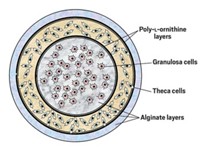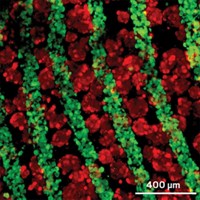Advertisement
Grab your lab coat. Let's get started
Welcome!
Welcome!
Create an account below to get 6 C&EN articles per month, receive newsletters and more - all free.
It seems this is your first time logging in online. Please enter the following information to continue.
As an ACS member you automatically get access to this site. All we need is few more details to create your reading experience.
Not you? Sign in with a different account.
Not you? Sign in with a different account.
ERROR 1
ERROR 1
ERROR 2
ERROR 2
ERROR 2
ERROR 2
ERROR 2
Password and Confirm password must match.
If you have an ACS member number, please enter it here so we can link this account to your membership. (optional)
ERROR 2
ACS values your privacy. By submitting your information, you are gaining access to C&EN and subscribing to our weekly newsletter. We use the information you provide to make your reading experience better, and we will never sell your data to third party members.
Biological Chemistry
Intestinal grafts grown from stem cells
Engineered tissue absorbs and transfers nutrients, could be used to enhance or restore intestinal function
by Celia Henry Arnaud
October 16, 2017
| A version of this story appeared in
Volume 95, Issue 41
Gastrointestinal disorders such as Crohn’s disease can lead to a condition known as short bowel syndrome (SBS) in which a significant portion of a person’s small intestine is no longer capable of absorbing nutrients. Intestinal grafts to supplement the remaining small intestine could help restore this lost function. A team led by Harald C. Ott of Massachusetts General Hospital has grown functional intestinal tissue by seeding scaffolds formed from rat small intestines with human pluripotent stem cells (Nat. Commun. 2017, DOI: 10.1038/s41467-017-00779-y). The researchers remove all cells from a segment of rat small intestine to form a scaffold that retains the extracellular architecture of the original tissue. They direct the human stem cells to differentiate into intestinal progenitor cells and then use them to seed the scaffold. After two weeks in culture, the progenitor cells produce many of the cell types usually found in intestinal tissue. The researchers also add human umbilical cells to regrow blood vessels. The regenerated tissue is able to take up and transport glucose and fatty acids through the vasculature, with grafts transplanted into immunodeficient rats surviving and functioning for at least four weeks. Adding “bioengineered constructs as small segments of additional absorptive surface area could become a treatment option for nutrient intake in SBS in the future,” the researchers write.




Join the conversation
Contact the reporter
Submit a Letter to the Editor for publication
Engage with us on Twitter